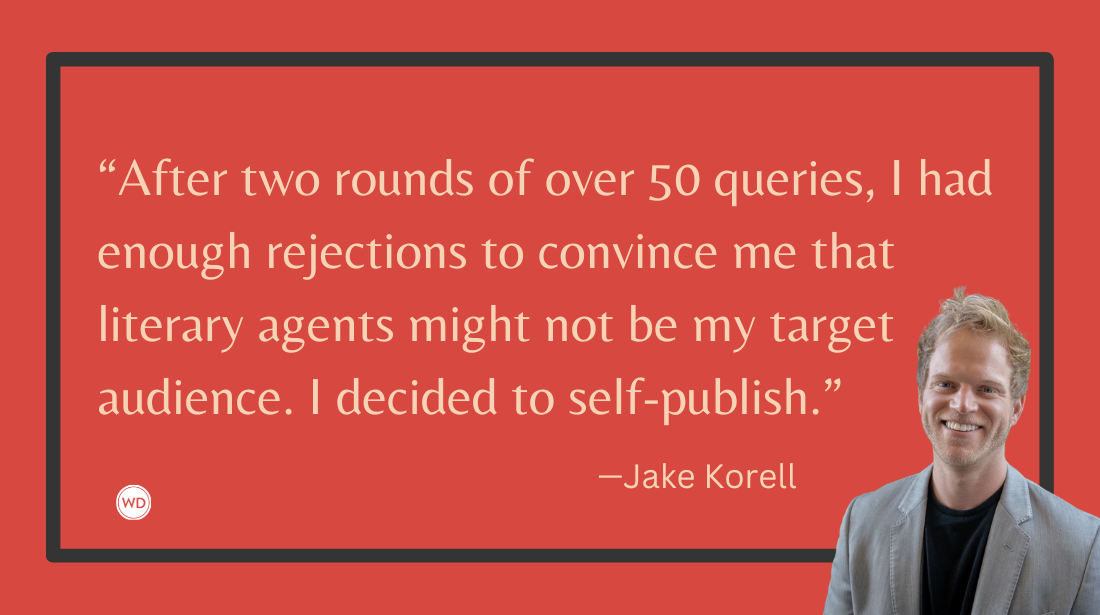Writing Advice Hasn’t Changed Much Since 1921
On my desk I keep a copy of one of the first Writer’s Digest titles, How to Write Short Stories by L. Josephine Bridgart, published in 1921. It is a…
On my desk I keep a copy of one of the first Writer's Digest
titles, How to Write Short Stories by L. Josephine Bridgart, published
in 1921. It is a subtle reminder of how little things have changed
when it comes to writing and publishing. Below is an excerpt from the
very first chapter, "Common Sense in Viewing One's Work."
—
Writing
for publication is a business. If the new writer will accept this fact
he will have laid a foundation upon which, if he have the necessary
natural ability, he can build success.
If a young woman tells
you that she intends to take up nursing, and later reveals that her
chief reason for doing so is that the uniforms in a certain hospital
have attracted her, or that she enjoys reading to the sick, or dislikes
the business life her father has suggested for her, or has heard that
nurses make a great deal of money, you immediately feel that her
nursing will not be a great success. You reason that nursing involves
some very hard and disagreeable duties and that a girl who think only
of the incidental pleasures or the monetary rewards is pretty sure to
fail. It is not common business sense to enter a profession without
taking into consideration the requirements of that profession.
I
have read this lack of common business sense between the lines of many
a first story. Some of these stories tell how a young girl with no
experience won a prize in a short story or novel contest; often the
prize-winning story was written in an afternoon, or an evening, or in
the dead of night as the result of an idea which came to the author
after she had retired. Some of these stories are about attractive young
women who sold an editor a manuscript because she was attractive, or
because she was poor, or because she was sick or saucy. Such stories
show plainly that the authors are depending on personal charm or "an
inspiration" or luck rather than upon hard work to win acceptances.
They do not stop to reason that before they can hope to sell a
manuscript they must learn how to produce a manuscript that some editor
will want to buy. …
Unless you respect the principles governing
the construction of a story or an article or a poem you cannot produce
a manuscript that the careful editor will consider worthy of a place in
his magazine. In any other trade or profession, the beginner expects to
encounter a great deal of hard work. He expects to master certain
rules, learn to apply them, and then make himself skillful by practice.
Writing for publication means careful preparation and a great deal of
hard work, just as millinery and surgery and sculpture do.
In
her autobiography Ellen Terry tells of actresses who had explained to
her that they did not care to be hampered by the rules. The successful
actress had replied that it was wise to learn the rules before one
decided to abandon them. "Before you can be eccentric," she commented
pithily, "you must know where the circle is." …
The editor does
not care at all about rules as rules. He wants a manuscript that will
hold his readers' interest. If you can break the rules and still
produce a manuscript that will grip the attention from the first
sentence to the last you need not fear that your irregularities will
cause you a rejection.
Jane Friedman is a full-time entrepreneur (since 2014) and has 20 years of experience in the publishing industry. She is the co-founder of The Hot Sheet, the essential publishing industry newsletter for authors, and is the former publisher of Writer’s Digest. In addition to being a columnist with Publishers Weekly and a professor with The Great Courses, Jane maintains an award-winning blog for writers at JaneFriedman.com. Jane’s newest book is The Business of Being a Writer (University of Chicago Press, 2018).









